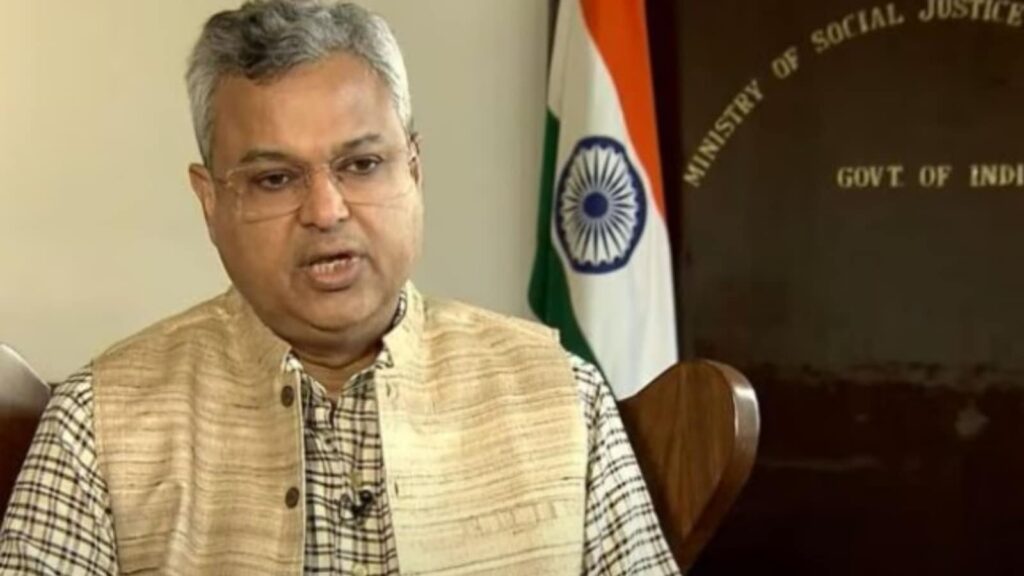970x125
The first ever, pan-India National Household Income Survey (NHIS), slated to begin in February, may be one of the “toughest” surveys the Ministry of Statistics and Programme Implementation (MoSPI) has done and key to its success will be raising public awareness and gaining their confidence, MoSPI Secretary Saurabh Garg told The Indian Express.
970x125
“Globally, income surveys are the toughest. That’s the reason we have tried three times in the past and then we had to back out. But we are going to go ahead with this, but let’s see what the results come out to be. We can’t predict that, but we are hopeful”, Garg said in an exclusive interview.
The NHIS is set to be launched in February 2026 and its results should be available by the middle of 2027.
Past efforts to measure incomes of Indian households have not led to pilot surveys translating into nationwide surveys on income distribution due to difficulties in collecting reliable income data, with some even showing income levels to be lower than the sum of consumption and savings.
Garg said that not just other countries but some private agencies in India too conduct such income surveys and that they require “greater effort and rapport building”.
Household surveys on their incomes are notoriously difficult on account of people’s hesitancy to divulge information on the money they earn from various sources. Earlier attempts to conduct income surveys date back to the 1950s, when the government tried to collect information on income as part of its consumer expenditure surveys on an experimental basis.
Further attempts were made in the 1960s as part of the Integrated Household Survey. However, these trials were not continued as it was found that the estimates of income were lower than the estimates of consumption and savings put together. The operational feasibility of collecting household income data was again explored in the 1980s but it did not lead to a national survey.
Story continues below this ad
In a pre-testing exercise, which MoSPI conducted in early August to evaluate the clarity, comprehension, interpretability, and acceptability of the questionnaire to be used in the NHIS, it was found that while 73 per cent of the respondents felt the questionnaire was relevant and 84 per cent had partial-to-good understanding of the purpose of the survey, an overwhelming proportion of people, 95 per cent, considered the information they were required to provide as “sensitive”.
Similarly, 95 per cent “felt uncomfortable disclosing income from different sources” and most respondents “refused to answer questions on income tax paid”, as per MoSPI’s report on the pre-testing exercise.
“In view of the sensitive nature of the information proposed to be collected in the survey, it is absolutely essential to raise awareness, gain confidence and dispel myths among the respondents,” said the MoSPI report released on October 13.
Flagging the report’s conclusions, Garg framed the challenge.
“I think a lot more effort on communication has to be there — communication at a broader level and the assurance of anonymity. I think those are things which we all have to focus a lot more on, and maybe at the local level also contact the household in advance. Those are the things that based on the pilot they are working on — that would be the SOP (standard operating procedure) for the survey,” he said.
Story continues below this ad
MoSPI has constituted a Technical Expert Group (TEG) under the chairmanship of Surjit S Bhalla, Former Executive Director of India, International Monetary Fund. Apart from overseeing the survey exercise, the Expert Group will also “provide guidance for finalisation of the survey results and report for release”.
When asked if MoSPI would release the findings of the forthcoming NHIS irrespective of the results, Garg declined to answer, saying it would be incorrect to speculate at this stage.
“We have an expert committee for that. The expert committee will look at it and then take a view on what form the final result has to be released, whether the survey will be a pilot, a regular survey, or experimental. But it’s too early to talk about it,” he said.
Earlier, the MoSPI had not released results of the Consumer Expenditure Survey for 2017-18 citing data quality issues. When asked about the income survey results in that context, Garg said: “That’s why we have an expert group and they will examine it. I think it’s too early to speculate now and talk of what’s going to happen one year later — neither you know nor I know. So let’s not speculate. We’ll take a call at that time. All I can say is that we will take a call to ensure that there are no issues on credibility and no questions are asked on that. It will be done in consultation with experts and a final view will be taken.”
Story continues below this ad
The latest attempt to conduct an income survey comes amid a sharp increase in the number of surveys by MoSPI to meet the demands of various ministries. While announcing the NHIS in June, MoSPI had said that the survey’s findings were “vital” and that there was an “urgent need” for a dedicated income distribution survey “to better understand the profound structural changes that have occurred in the Indian economy over the past 75 years”.
As per latest data, India’s per capita gross national income in 2024-25 was Rs 2.31 lakh in current prices, up 8.7 per cent from 2023-24.
970x125

